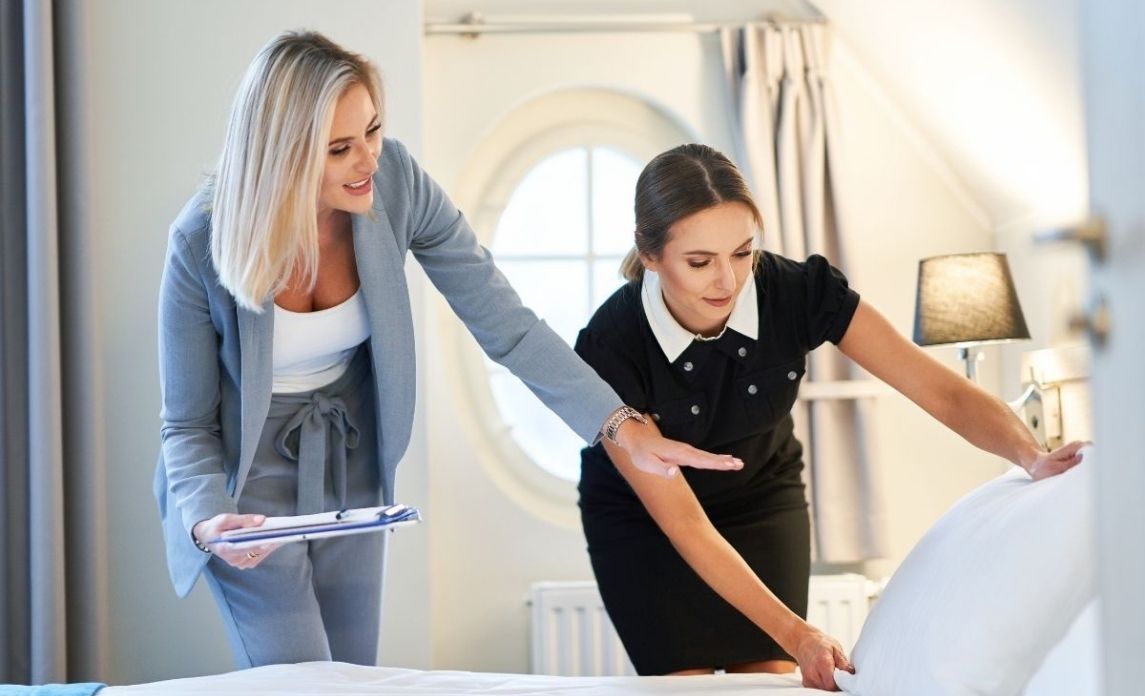It doesn’t matter how beautiful a hotel is if it isn’t spotlessly clean. Indeed, customers are more likely to appreciate a simple yet immaculately maintained establishment over a lavish but dirty one.
In short, in order to be successful in the hospitality industry, your hotel must not only be aesthetically pleasing but also hygienic. This will ensure the health and safety of your personnel and your guests.
Luckily, it’s easy to find reliable commercial cleaners in New Zealand. They can provide you with top-notch cleaning services to ensure that everything is up to standard.
That said, as a hotel manager or administrator, you should also be familiar with the best practices when it comes to hotel cleaning. This way, you can properly monitor the work of your cleaners and keep yourself abreast of the latest trends. Here are some to keep in mind:
Working With the Right Tools
Whether there’s a pandemic or not, hotel cleaners should wear personal protective equipment (PPE) when doing their jobs. Not only do these special clothing and accessories protect against disease-causing microorganisms, they also help prevent injuries.
The key here is to ensure that the correct PPE is worn for every kind of cleaning job. For instance, cleaners who need to use chemicals must be required to wear gloves, masks, and goggles. Meanwhile, those who need to work on high places should wear hard hats.
Aside from wearing the right protective equipment, proper disposal or sanitation is also a must. For example, gloves used to clean the toilet and handle waste should be thrown away to prevent cross-contamination. Then, new gloves must be worn before continuing with other tasks. Reusable items such as goggles and hats, on the other hand Finally, workers should wash their hands properly after completing their job.
Top-to-Bottom Bedroom Cleaning
One of the most important elements of hotel cleaning is the replacement of used bed sheets. These should be washed and disinfected after a guest has left the room and replaced with fresh ones. Linens, pillowcases, and towels should also be included in this routine.
Carpets should also be vacuumed thoroughly, while hardwood or marble floors must be swept and polished. If a room has recently been disinfected and/or deep-cleaned, make sure to let a couple of hours pass before allowing the next guests to check-in.
Lastly, high-touch objects and surfaces such as remote controls, light switches, desk surfaces, and bathroom countertops must be cleaned and disinfected. Closets and clothing drawers must also be aired and sprayed with disinfectant. Doing these can help reduce the risk of spreading germs.
Disinfecting Toilets and Bathrooms
Some guests are quite particular about the cleanliness of a hotel’s toilets and bathrooms. Indeed, even the most luxurious hotel suite can feel cheap if the toilet and bathroom are dirty and reeking of foul odours. Of course, dirty toilets and bathrooms can also harbour disease-causing germs.
Aside from regularly-scheduled deep-cleaning, toilets and bathrooms should also be sanitised and disinfected after guests check out. The rubbish should be handled with care to prevent contamination, and then disposed of properly.
For toilets in common areas, there should be an hourly check of essentials like tissue paper and soap. Coordinate the temporary closing times of these facilities with the staff, so that they can direct guests to other areas while the cleaning is on-going. Finally, door handles, toilet seats, flush handles or buttons, and other high-touch items must be properly sanitised.
Focusing on High-Touch, High-Traffic Areas
Hotels have a lot of high-touch objects and high-traffic areas that could potentially be breeding grounds for harmful microorganisms. To prevent the spread of disease, as well as the accumulation of dirt and grime, these objects and areas must always be sanitised and disinfected regularly. These include lift buttons, door handles, and staircase handrails.
In addition, high-traffic areas should always be kept clean, clear, and dry. Doing so will help prevent accidents such as tripping and slipping.
Providing Cleaning Aids in Common Areas
Common spaces in hotels—including leisure areas like gyms and business facilities like conference rooms—must also receive adequate sanitation and disinfection. These places are shared among hundreds of users, which means they can get dirty quickly.
Gyms, in particular, should be sanitised frequently because sweat and saliva can cling to surfaces for days. Meanwhile, conference rooms must be cleaned after every event and then aired and re-sanitised before use.
It’s also helpful to provide cleaning aids such as soap, paper towels, and alcohol-based hand sanitisers in these common areas to ensure that guests can stay safe and healthy. At the same time, this also helps encourage both guests and personnel to also maintain cleanliness.
Keeping things meticulously clean is part and parcel of maintaining a hotel. It shows that you care not just about your guests, but also your staff. This can then reflect on your reputation as an establishment, which can lead to an increase in inquiries and bookings.
So you see, efficient, effective hotel cleaning results in a win-win-win situation: for the hotel as a business, your staff, and your guests.


